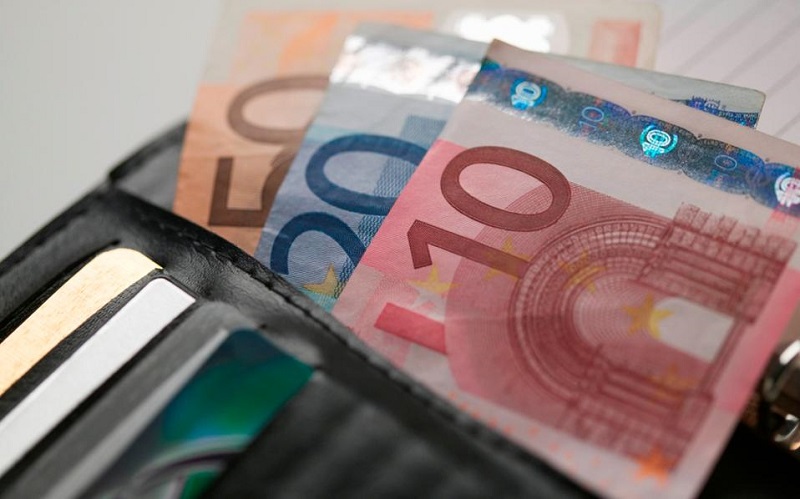
A new landscape in terms of wages is being formed after the official announcement by the Prime Minister Mr. K. Mitsotakis of the acceleration of the process for the validity of the new threshold of minimum wages.
There are three developments that are expected in the next period around the minimum wage.
First, the government will bring a legislative provision to speed up the process of shaping, but also to change the force of, the new minimum wage from 1 May. This is necessary, as the law in force stipulates that the process is completed in June and the new salary takes effect on January 1 of the following year. The regulation – most likely – will provide that especially for 2022 “another time step” will be followed for the formation of the minimum wage but also for its effective date.
Secondly, all indications are that the minimum wage may exceed 700 euros as the new increase – after the 2% in January – reaches and may exceed 6%.
Thirdly, in 2023 it is to be followed by a new high increase with the lowest exceeding – after 11 years – the 751 euro height where it was before its reduction, in February 2012, when the country and the economy were in a state of memorandum surveillance.
The countdown
For the rest, the countdown has started for the second – substantial this time – increase of the minimum wage within 2022. In the next few days the consultation process will begin while the final announcement of the percentage will be made in April and will take effect from the 1st May.
The acceleration of the process and the validity of the second installment of increases within 2022, was personally decided by the Prime Minister Mr. K. Mitsotakis and he asked the Ministry of Labor for its implementation.
The prime minister – of course – did not refer to the percentage in numbers, but described the second installment of the increase as “significant and much larger” than the 2% increase given on January 1, 2022.
This report contributes to the prevailing scenario revealed by OT for an additional increase of 6% – in addition to the 2% that was valid from 1.1.2022 – and setting the minimum at 703 euros.
The Ministry of Labor has already prepared the immediate start of the process and after the announcement of the Prime Minister will speed up the necessary procedures. At the same time, it has taken a stand in favor of maintaining the three-year term, which is another burning issue related to pay. The ministry will immediately set up a three-member coordination committee for the consultation, which will coordinate the dialogue with the social partners, the scientific institutes, the Centre of Planning and Economic Research KEPE and the Bank of Greece.
All indications point to an increase of at least 6%, in addition to the 2% already granted from January 1 of the new year. According to the government plan – in total – the increase for 2022 will “move” close to the area of GDP growth, which is set at around 8%. Thus, after 2%, the final increase of the minimum wage is expected to be completed with an additional 6%. In this scenario – which is the most likely today – the minimum wage, which rose to 663 euros in January, will reach 703 euros in May.
Latest News

New Exposé by Domumento Reveals Nefarious Triangular Link of ‘Black Money’ with New Democracy, Blue Skies, & Truth Team
The latest exposé by the Documentonews.gr news site lays bare what appears to be a surreptitious path of indirect financing of ND through the business sector—transactions that, as widely understood, rarely occur without expectations of reciprocal benefit

PM Meloni Meets Vice President Vance in Rome Signalling Optimism on Ukraine Talks
Meloni emphasized the strength and strategic value of the Italy-U.S. partnership.

Airbnb: Greece’s Short-Term Rentals Dip in March Amid Easter Shift
Data from analytics firm AirDNA shows that average occupancy for short-term rentals dropped to 45% in March, down from 49% the same month last year.

Easter Week in Greece: Holy Friday in Orthodoxy Today
At the Vespers service on Friday evening the image of Christ is removed from the Cross and wrapped in a white cloth

Meloni and Trump Meet in Washington, Vow to Strengthen Western Ties
“I am 100% sure there will be no problems reaching a deal on tariffs with the EU—none whatsoever,” Trump stressed.

ECB Cuts Interest Rates by 25 Basis Points in Expected Move
The ECB’s Governing Council opted to lower the deposit facility rate—the benchmark for signaling monetary policy direction—citing an updated assessment of inflation prospects, the dynamics of underlying inflation, and the strength of monetary policy transmission.

Current Account Deficit Fell by €573.2ml Feb. 2025: BoG
The improvement of Greece’s current account was mainly attributed to a more robust balance of goods and, to a lesser extent, an improved primary income account

Hellenic Food Authority Issues Food Safety Tips for Easter
Food safety tips on how to make sure your lamb has been properly inspected and your eggs stay fresh.

Greek Kiwifruit Exports Smash 200,000-Ton Mark, Setting New Record
According to data by the Association of Greek Fruit, Vegetable and Juice Exporters, Incofruit Hellas, between September 1, 2024, and April 17, 2025, kiwifruit exports increased by 14.2%.

Easter Tourism Boom: Greece Sees 18.3% Surge in Hotel Bookings
Among foreign markets, Israel has emerged as the biggest growth driver, with hotel bookings more than doubling—up 178.5% year-on-year.







![Πλημμύρες: Σημειώθηκαν σε επίπεδα ρεκόρ στην Ευρώπη το 2024 [γράφημα]](https://www.ot.gr/wp-content/uploads/2025/04/FLOOD_HUNGRY-90x90.jpg)





![Airbnb: Πτωτικά κινήθηκε η ζήτηση τον Μάρτιο – Τι δείχνουν τα στοιχεία [γράφημα]](https://www.ot.gr/wp-content/uploads/2024/07/airbnb-gba8e58468_1280-1-90x90.jpg)











![Επιχειρήσεις: Με τι επιτόκιο δανείζονται – Πώς θα ξεκλειδώσει περισσότερη ρευστότητα [γράφημα]](https://www.ot.gr/wp-content/uploads/2025/04/daneia-trapezes-768x432-1-600x338.jpg)














 Αριθμός Πιστοποίησης
Αριθμός Πιστοποίησης